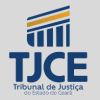O CONSELHO NACIONAL DE JUSTIÇA COMO MECANISMO DE CONCRETIZAÇÃO DO IUS CONSTITUTIONALE COMMUNE LATINO-AMERICANO: UM ESTUDO ACERCA DA APLICAÇÃO DA RECOMENDAÇÃO N. 123/2022 PELOS TRIBUNAIS FEDERAIS NO BRASIL
DOI:
https://doi.org/10.56256/themis.v22i1.1022Abstract
The aim is to analyze the National Council of Justice as a mechanism for the realization of the Latin American Ius Constitutionale Commune, conducting a study on the aspects related to its Recommendation n. 123/2022, and examining whether the performance of the Brazilian Federal Regional Courts is in line with its provisions and the logic of the Ius Constitutionale Commune, based on the application of the decisions of the Inter-American Court of Human Rights, the duty of conventional control, and respect for international human rights treaties. The following questions will be addressed: Is it possible to consider the National Council of Justice as a mechanism for the realization of the Latin American Ius Constitutionale Commune? Is the jurisprudence of the Brazilian Federal Regional Courts analyzed aligned with Recommendation n. 123/2022 and the logic of the Latin American Ius Constitutionale Commune? The deductive method and the bibliographic and jurisprudential research technique are applied, examining the decisions listed in the National Contest of Judicial Decisions and Judgments in Human Rights resulting from the National Judiciary Pact, the latter inspired by the drafting of Recommendation n. 123/2022. In conclusion, the National Council of Justice is seen as an important mechanism for the realization of the Ius Constitutionale Commune, with the jurisprudence of the Federal Regional Courts, selected by the aforementioned contest, in line with the provisions of Recommendation n. 123/2022 and in compliance with the new regional movement of the Ius Constitutionale Commune.
Downloads
Published
How to Cite
Issue
Section
License
- Todos os artigos são publicados sob a licença Creative Commons - Atribuição Não Comercial (CC BY-NC), permitindo que terceiros copiem, distribuam e adaptem o conteúdo, desde que seja dada a devida atribuição ao autor e à revista.
- No caso da licença CC BY-NC, o uso comercial dos artigos não é permitido.
















